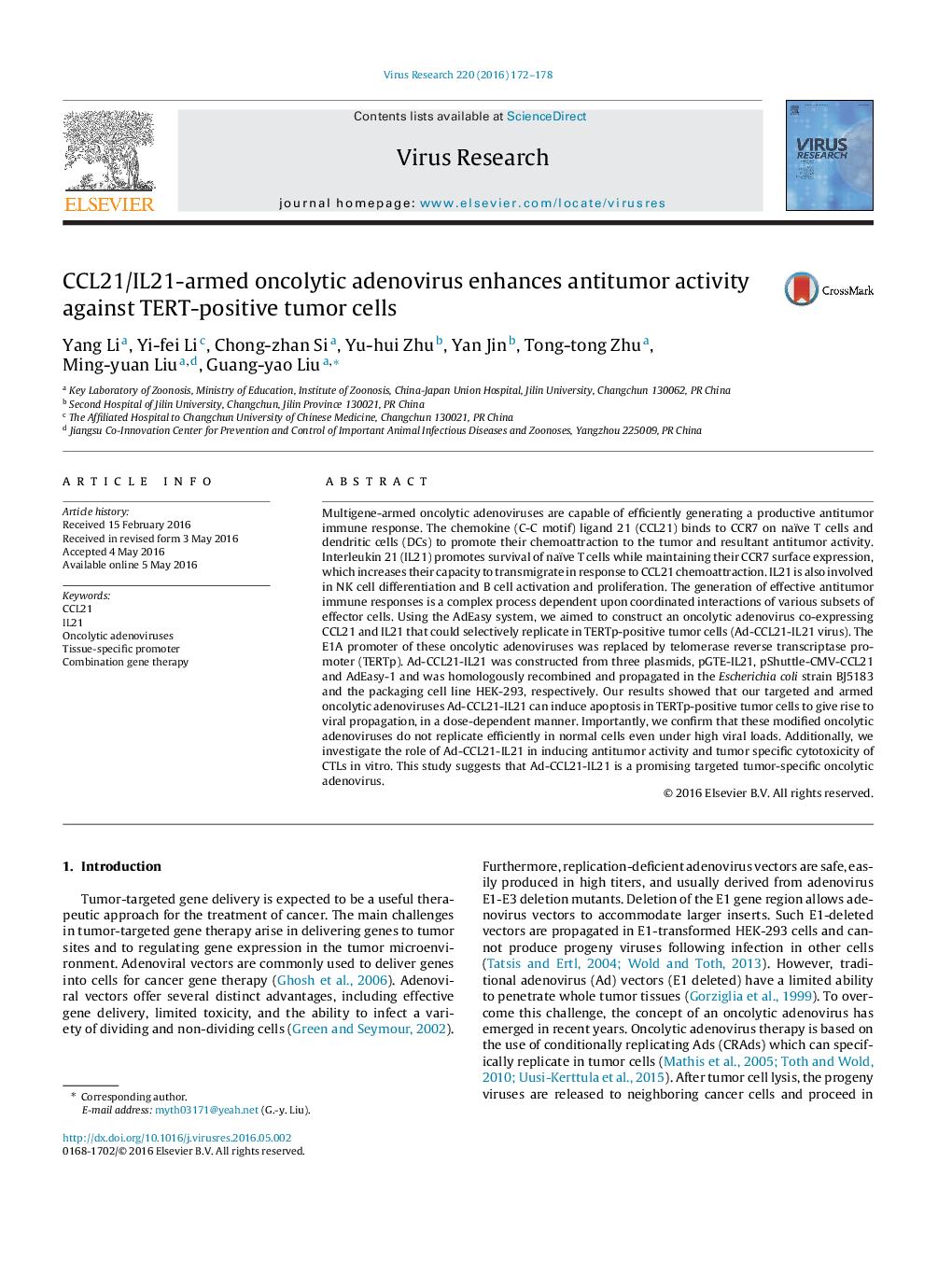| Article ID | Journal | Published Year | Pages | File Type |
|---|---|---|---|---|
| 6142089 | Virus Research | 2016 | 7 Pages |
â¢We constructed a CCL21/IL21 co-expression CRAds (conditionally replicating adenoviruses) based on AdEasy system. The Ad-CCL21-IL21 contains three plasmids: pGTE-IL21, pShuttle-CMV-CCL21 and AdEasy-1, Escherichia coli strain BJ5183, and packaging cell line 293.â¢Ad-CCL21-IL21 could selectively replicate in TERT-positive tumor cells, because the plasmid pGTE-IL21 contained the promoter of telomerase reverse transcriptase (TERTp).â¢Our results showed that Ad-CCL21-IL21 induced oncolytic effects and tumor-specific cytotoxicity of cytotoxic T lymphocytes (CTLs) in vitro.â¢This study suggests that Ad-CCL21-IL21 can induce antitumor immune response in tumor tissues and this platform can be modified to generate novel CRAds with other transgenes.
Multigene-armed oncolytic adenoviruses are capable of efficiently generating a productive antitumor immune response. The chemokine (C-C motif) ligand 21 (CCL21) binds to CCR7 on naïve T cells and dendritic cells (DCs) to promote their chemoattraction to the tumor and resultant antitumor activity. Interleukin 21 (IL21) promotes survival of naïve T cells while maintaining their CCR7 surface expression, which increases their capacity to transmigrate in response to CCL21 chemoattraction. IL21 is also involved in NK cell differentiation and B cell activation and proliferation. The generation of effective antitumor immune responses is a complex process dependent upon coordinated interactions of various subsets of effector cells. Using the AdEasy system, we aimed to construct an oncolytic adenovirus co-expressing CCL21 and IL21 that could selectively replicate in TERTp-positive tumor cells (Ad-CCL21-IL21 virus). The E1A promoter of these oncolytic adenoviruses was replaced by telomerase reverse transcriptase promoter (TERTp). Ad-CCL21-IL21 was constructed from three plasmids, pGTE-IL21, pShuttle-CMV-CCL21 and AdEasy-1 and was homologously recombined and propagated in the Escherichia coli strain BJ5183 and the packaging cell line HEK-293, respectively. Our results showed that our targeted and armed oncolytic adenoviruses Ad-CCL21-IL21 can induce apoptosis in TERTp-positive tumor cells to give rise to viral propagation, in a dose-dependent manner. Importantly, we confirm that these modified oncolytic adenoviruses do not replicate efficiently in normal cells even under high viral loads. Additionally, we investigate the role of Ad-CCL21-IL21 in inducing antitumor activity and tumor specific cytotoxicity of CTLs in vitro. This study suggests that Ad-CCL21-IL21 is a promising targeted tumor-specific oncolytic adenovirus.
